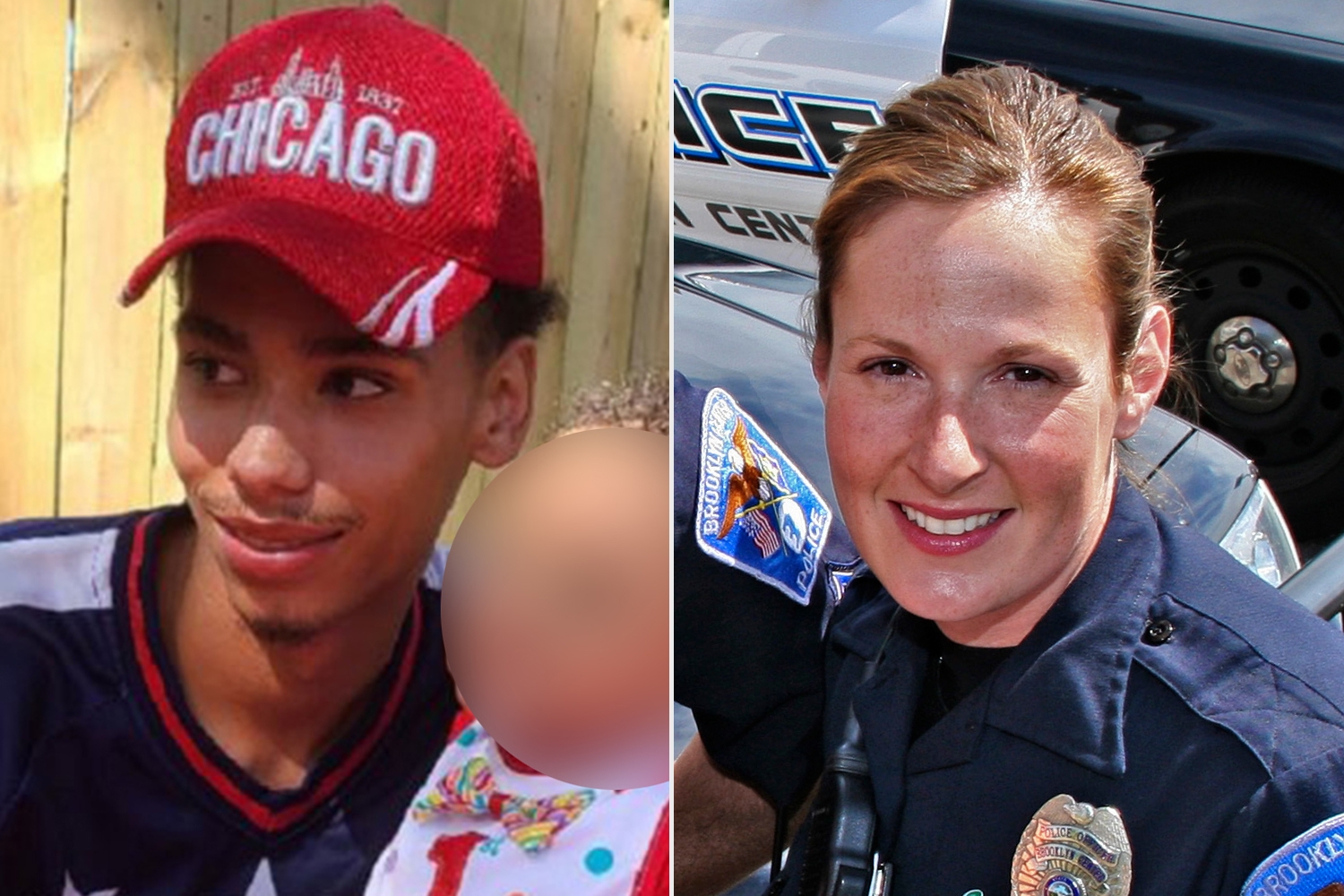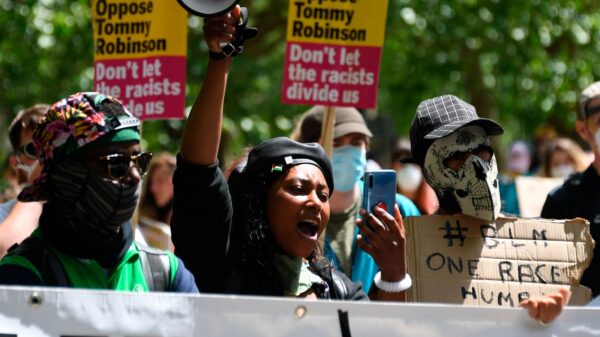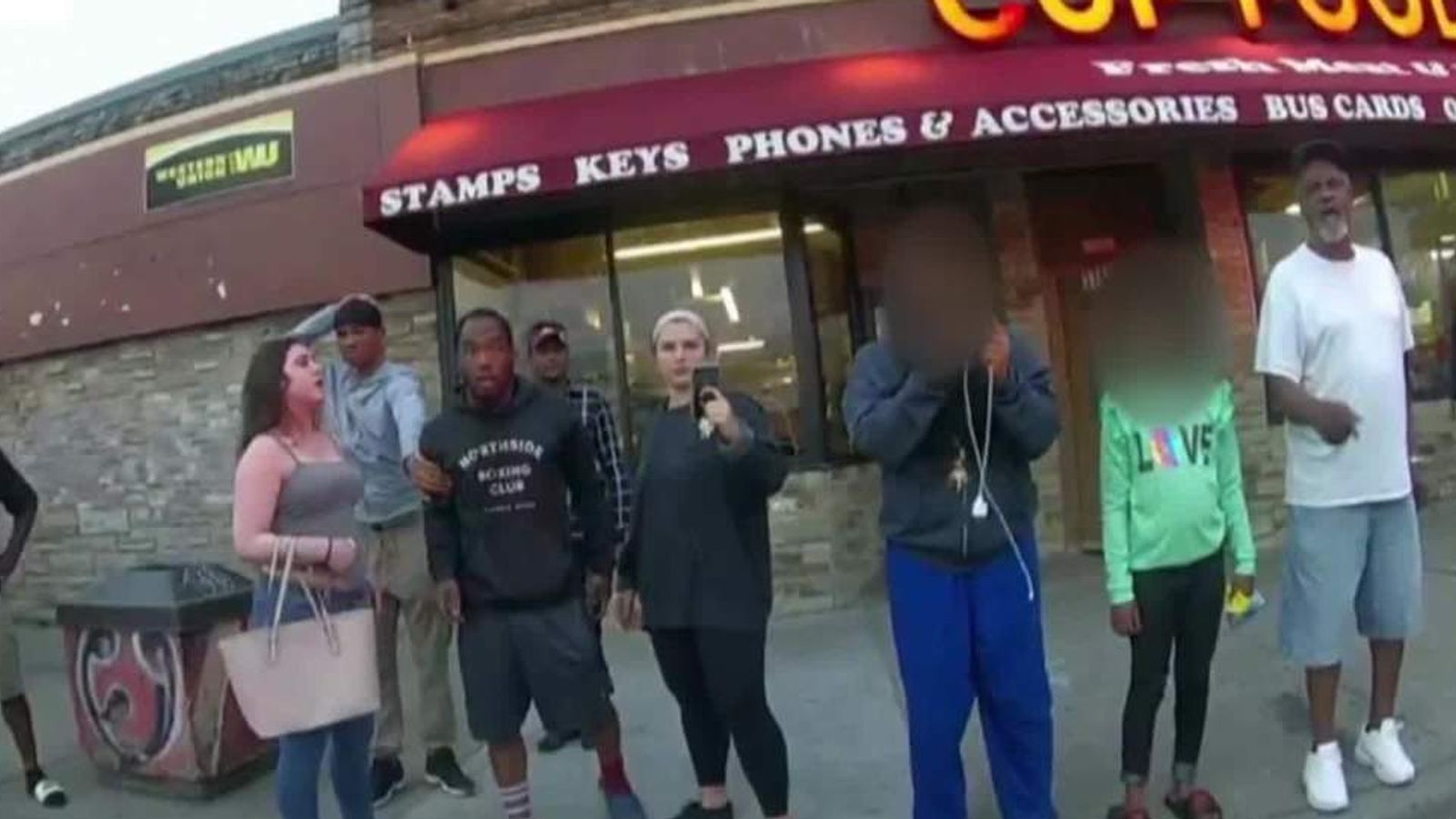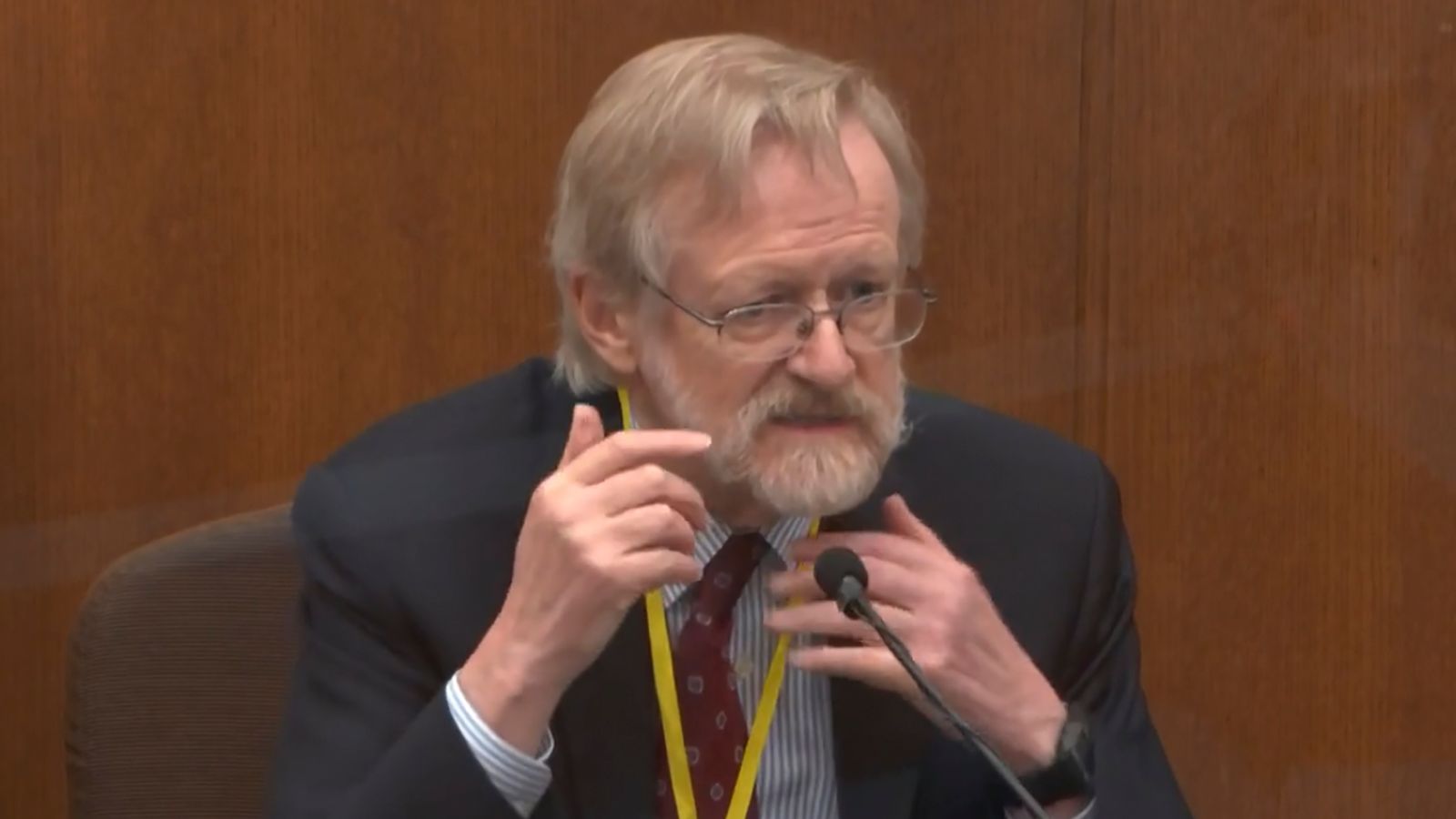A jury convicted the white former Brooklyn Center police officer after she fatally shot the 20-year-old Black man during a traffic stop.
A jury found former Minnesota police Officer Kim Potter guilty on both manslaughter charges Thursday for fatally shooting 20-year-old Daunte Wright during a traffic stop in Brooklyn Center, a Minneapolis suburb, in April.
Jurors deliberated for more than 27 hours over the course of four days. The mostly white jury of six women and six men heard eight days of testimony, and on Tuesday, between deliberations, they asked the judge for guidance on what steps should be taken if the jurors could not reach a consensus.
“Members of the jury, when you first came into the courtroom, I told you that jurors are the heroes of our judicial system,” Hennepin County Judge Regina Chu said after the verdict. “Well, the 12 of you are our heroes. … Without civic-minded citizens like you, our system of justice could not function.”
Potter, who is white, was charged with first- and second-degree manslaughter after she shot Wright, an unarmed Black motorist, in the chest. She has said she meant to use her stun gun rather than her firearm. The shooting, which occurred with two other officers and a passenger of Wright’s in close proximity, resulted in Wright driving away and crashing into an occupied vehicle. Potter resigned two days later.
In this case, the first-degree manslaughter charge accuses Potter of killing Wright while committing the misdemeanor offense of “reckless handling or use of a firearm.” The second-degree manslaughter charge accuses her of causing Wright’s death “by her culpable negligence.” Prosecutors had reminded the jury that Potter was not charged with murder, and that the state was not accusing her of intending to kill Wright.
Sentencing for Potter has been set for Feb. 18. The maximum sentence is 15 years for a first-degree manslaughter conviction, and 10 years for a second-degree conviction. However, Minnesota judges follow sentencing guidelines that normally call for less time ― just over seven years for first-degree manslaughter, and four years for second-degree.
Chu announced after the verdict that Potter will be taken into custody without bail. The defense said they intend to file for dispositional departure, arguing that Potter deserves not to be incarcerated pending her sentencing hearing. Chu maintained that Potter would be held without bail.
Prosecutors also said they are seeking a longer sentence for Potter due to aggravating factors, similar to the prosecution of former Minneapolis police Officer Derek Chauvin in George Floyd’s murder. During the trial, Potter waived her right for a jury to decide whether aggravating factors exist in her case, leaving the decision to Chu.
During the trial, prosecutors pointed out that Potter was a 26-year veteran officer who’d had extensive training in stun gun use and the use of deadly force. They argued that her actions were unreasonable, reckless and dangerous to others around her. The state called a long list of witnesses to assist the jury in understanding the details of the traffic stop, the difference between a stun gun and a handgun, and the intensity of Potter’s training.
“This was no little oopsie,” Assistant Attorney General Erin Eldridge said in closing arguments on Monday. “This was a colossal screw-up, a blunder of epic proportions. It was precisely the thing she had been warned about for years, and she had been trained to prevent it. It was irreversible and fatal.”
Potter’s attorneys have argued throughout the trial that the former Brooklyn Center officer made a simple mistake when she killed Wright ― but that she also would have been justified in using deadly force if she’d intended to use her handgun, because another officer, Sgt. Mychal Johnson, was at risk of being dragged by Wright’s car. The defense also claimed that Wright caused his own death by resisting arrest during a traffic stop in which he was pulled over for having an air freshener and expired tags.
“You can train forever, and under exigent circumstances, you can end up making a mistake,” defense attorney Earl Gray told jurors in closing arguments. “In the walk of life, nobody’s perfect. Everybody makes mistakes. Some of them are small mistakes. Some of them are very serious.”
A criminal law expert who studies policing and use of force testified last week that the claim of Johnson’s life being at risk was false. The expert, former police Officer Seth Stoughton, pointed to body camera video showing that Johnson backed out of Wright’s vehicle when Potter yelled her “Taser” warnings. That meant Potter’s use of deadly force was not proportional to the situation, he testified.
Potter herself took the stand at the trial on Friday as the defense’s final witness. She said she shot Wright in a moment of chaos after he tried to leave the scene while she and other officers were trying to arrest him on an outstanding warrant for a gross misdemeanor weapons violation. According to the former officer, she meant to use her Taser ― which is bright yellow and weighs much less than the handgun she carried ― to incapacitate Wright when he pulled away from police and got back in his car. Instead, she shot him with her gun.
The ex-cop began sobbing while describing the shooting, and became emotional when Eldridge played video that showed her pointing her gun at Wright for several seconds before shooting. For most of Potter’s cross-examination, she was matter-of-fact and gave brief answers. She did not show emotion while Chu read the jury’s verdict on Thursday.
“The family of Daunte Wright is relieved that the justice system has provided some measure of accountability for the senseless death of their son, brother, father and friend,” the Wright family’s legal team said in a statement. “From the unnecessary and overreaching tragic traffic stop to the shooting that took his life, that day will remain a traumatic one for this family and yet another example for America of why we desperately need change in policing, training and protocols.”
Wright’s death fueled nationwide protests against police brutality and racial injustice, and led to Brooklyn Center passing a progressive resolution that offers a road map for overhauling its public safety system. The Daunte Wright and Kobe Dimock-Heisler Community Safety & Violence Prevention Act creates an oversight office to monitor police, and a new department consisting of unarmed civilians responsible for non-moving traffic violations.
“If we are ever going to restore the confidence of Black and marginalized Americans in law enforcement, we need to have accountability and a commitment to listening and to creating meaningful change. We must now turn our attention to ensuring that Kim Potter receives the strongest and most just sentence possible,” lawyers for the Wright family said in their statement. “It is also imperative that we focus on the conduct of Brooklyn Center and pinpoint its systemic failures that contributed to Daunte’s unlawful death.”






































